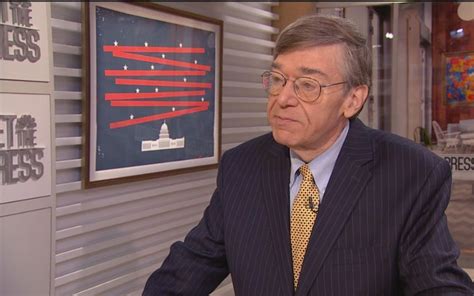Top 22 Quotes & Sayings by Hedrick Smith
Explore popular quotes and sayings by an American reporter Hedrick Smith.
Last updated on April 14, 2025.
Social Security is the foundation stone of that kind of retirement security. It not only needs to be strengthened in order to make sure it's there for younger baby boomers and Generations X and Y, but it probably needs to be strengthened and expanded because the retirement benefits now being offered by most employers are not sufficient to support middle-income Americans in their long years of retirement.
In Western Europe, most countries have variations of the lifetime pension system for most workers so they are keeping the system that we are walking away from. By comparison, 50% of the American workforce is not offered any retirement plan by their employers. And of those who are offered a plan, roughly 25% do not choose to join. In other words, everything is voluntary, and that's one of the reasons our results are so perilous for most people.
It's probably also smart to keep some money in cash to invest it. But I would resist at all costs taking a lump-sum distribution because the tendency is to spend out too fast in the early years of your retirement. The advice of professionals is to take out no more than 5% per year and that will give you 20 years of distributions, and at your age, 55, you probably have more than 20 years life expectancy.
The issue of the pension gap has got to become visible and important to millions of people before Washington will respond seriously. Right now, everyone thinks it's his or her own problem and that individuals have to do better and save more. Of course, that is true. We all have to save more and take responsibility for our own retirement. But we have a huge social and economic problem on our hands.
It's usually much easier for people with professional skills to find work for themselves or even possibly to continue with their old employer, but on a part-time basis. Some labor economists predict that in about five years there will be a labor shortage in the United States and that demand for retirees to work part-time will grow naturally. I don't know if that's true or just wishful predicting.
The children of baby boomers should take very seriously the consequences for them of the inadequate funding for them of the baby boomer generation. This is a huge economic problem for the nation, not just for individuals or individual families. Think about it for a minute - if retirees become 20% of our population and their purchasing power falls below what has been normal for retirees in the past, one important engine driving our economy will be diminished.
The retirement financial crisis will affect far more people than baby boomers, and certainly it will affect their children. Most of the retirees and near-retirees with whom we talked, said that they were extremely reluctant to have to depend on their children financially, or to think of moving in with their children. But the mere fact that they were discussing those issues indicates that some of them have already figured out that that is what lies ahead for them.
The most common mistakes were investing in money market funds by people who were so scared at the prospect of managing their own funds that they picked the most conservative option, and their investments did not keep up with inflation. The second major mistake was being too heavily invested in their own company's stock, and buying when it was high and there was a lot of optimism about the company, and then having to sell it low when the company got in trouble.
One of the strongest lessons I learned in doing six months of work on retirement topic was how absolutely crucial the Social Security system is for the great mass of Americans. The research of professionals and our own reporting convinced me that many millions of people are not capable of effectively managing the finances for their own retirement.
If the experts are right in their calculations, then we face the prospect of millions of people retiring into poverty from the American middle class in the years ahead. That has all kinds of social and economic consequences. We need to anticipate those and start tackling the problem in a constructive way.
I personally make sure that some of my investments are in foreign securities or in international commodity portfolios that are independent of the US dollar. But that's a personal preference. I do not invest in currencies because it's so complicated and so risky. I would not attempt that without excellent professional help.



















